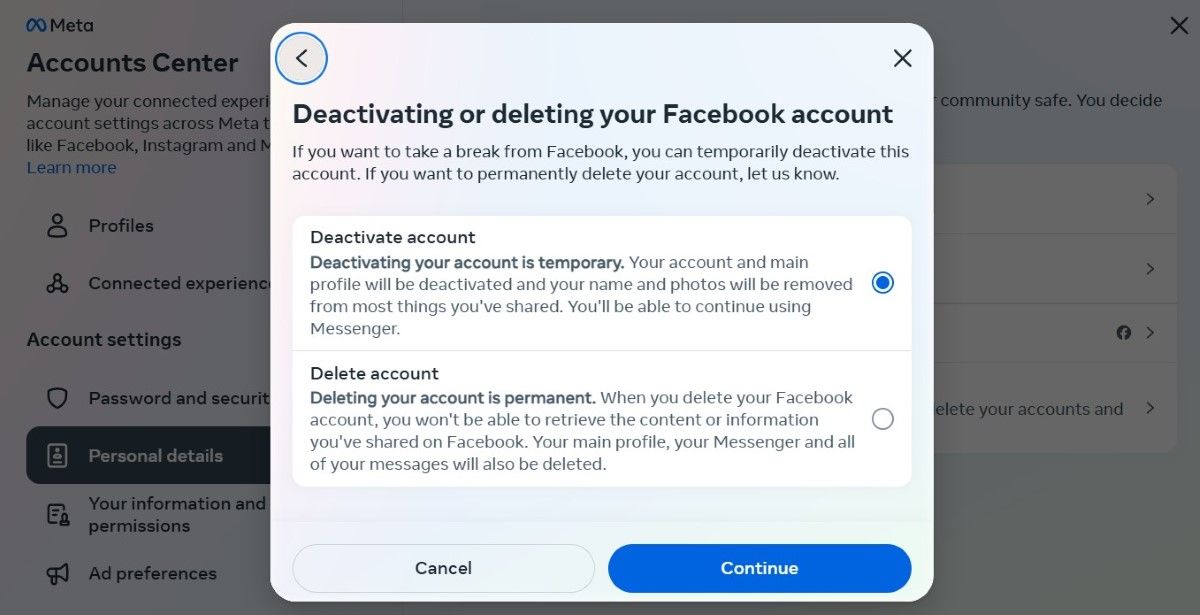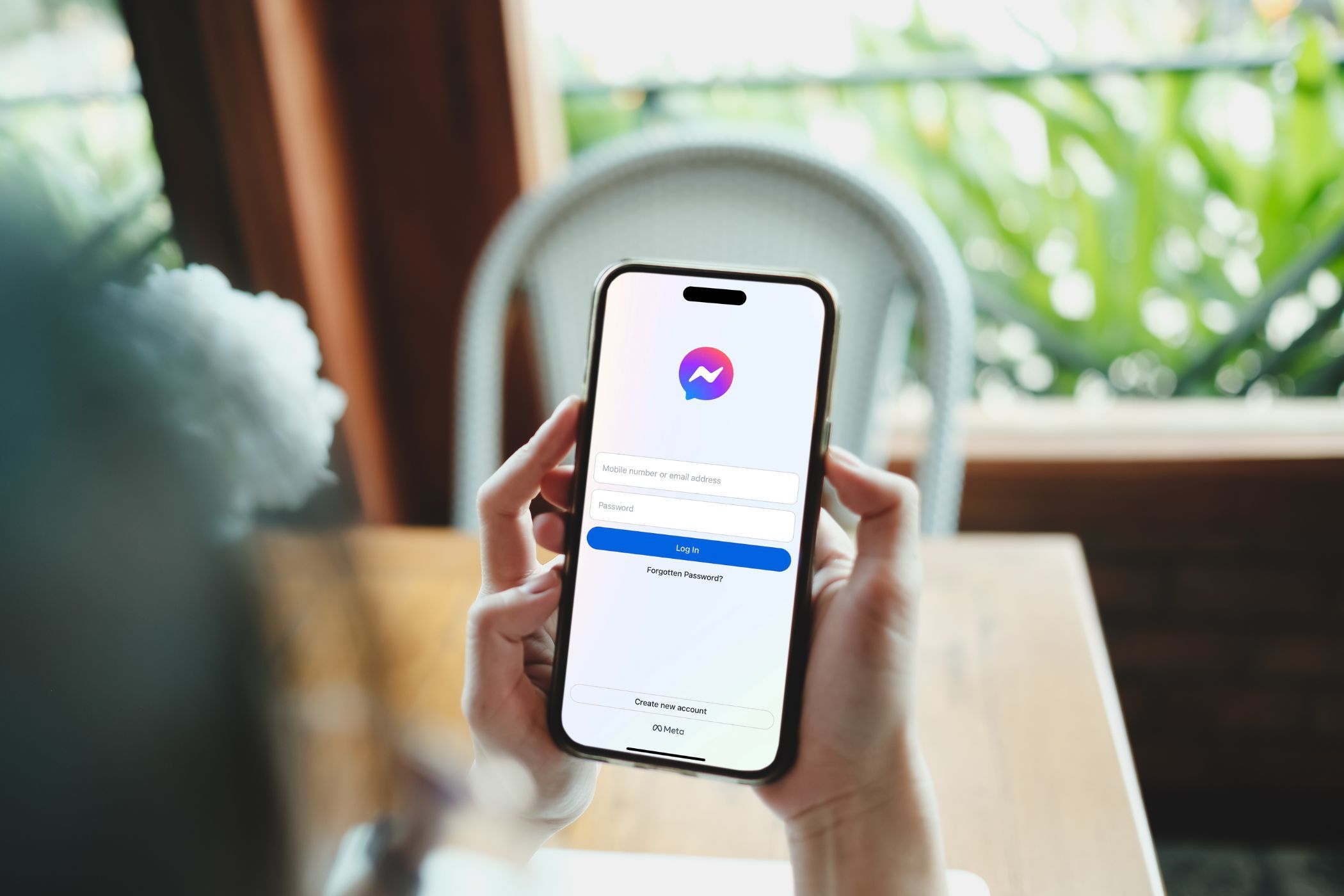When deciding to step back from Facebook, it’s important to understand the difference between deactivating and deleting your account. Both options allow you to remove your online presence, but they cater to different needs and circumstances. Let’s delve into the differences between the two.
Deactivating vs. Deleting Your Facebook Account: Key Differences
Deactivating and deleting your Facebook account mainly differ in terms of what happens to your data and whether you can reverse your decision. Here are some key differences you need to be aware of.
Account Accessibility
Deactivating your Facebook account is a temporary action that allows you to take a break from the platform without permanently losing access. Think of it as pausing your account; you can reactivate it at any time.
Conversely, deleting your Facebook account is a permanent decision. Once you do this, all data associated with your profile, including messages, photos, and connections, is scheduled for deletion after a 30-day grace period. Once this period is over, your account and all associated data are permanently deleted and cannot be recovered.
Messenger Access
When you deactivate your Facebook account, you retain access to Facebook Messenger, which means you can still chat with friends even without an active Facebook profile. Your name will still appear in your friends’ Messenger contacts.
Unlike deactivation, deleting your account fully removes your access to Messenger. All your chat history on Messenger is erased, and friends can no longer reach you through the platform. Messages you previously sent will appear as coming from “Facebook User”, and your account will be inaccessible for any future messages or replies.
Data Retention
Whether you choose to deactivate your account or delete it, Facebook hides your profile, posts, and content from other users, meaning others can’t search for your profile or interact with your posts as they will be invisible.
However, when you deactivate your account, Facebook retains all your data for easy reactivation. If you decide to return, your posts, photos, and connections will be restored exactly as they were.
On the other hand, deleting your account is a more permanent measure. Facebook begins deleting your data completely after the 30-day grace period, and the deletion process may take up to 90 days to complete. After the 30-day period, your information becomes inaccessible and you cannot recover it.
Deactivating vs. Deleting Your Facebook Account: Which One Should You Use?
Now that you understand the implications of deactivating or deleting your Facebook account, let’s discuss which option is best for you.
Deactivating your account is the better choice if you want to step back temporarily—perhaps to achieve a digital detox—or if you’re unsure about leaving Facebook for good. Deactivation is also useful if you don’t want to use Facebook but still wish to connect with your friends through Messenger.
If you are determined to leave Facebook and want no connection to the platform, deleting your account is the appropriate course of action. Additionally, deleting your account guarantees that most of your data is permanently removed from Facebook’s servers, freeing you from any lingering digital footprint or privacy issues associated with Facebook.
How to Reactivate Your Facebook Account After Deactivation or Deletion
If you have only deactivated your Facebook account, the process for reactivating it is straightforward. All you need to do is visit Facebook’s login page on any device and enter your login details (email or phone number and password).
If you opted to delete your Facebook account, you must log in to your Facebook account within 30 days of deleting your account. Once done, click the Cancel Deletion button that appears to confirm the decision.
Deciding between deactivating and deleting your Facebook account largely depends on what you want to achieve. If you’re unsure, deactivating first gives you the time and space to consider whether leaving Facebook is the right decision for you. If you decide it is, you can make your choice permanent by deleting your account.




